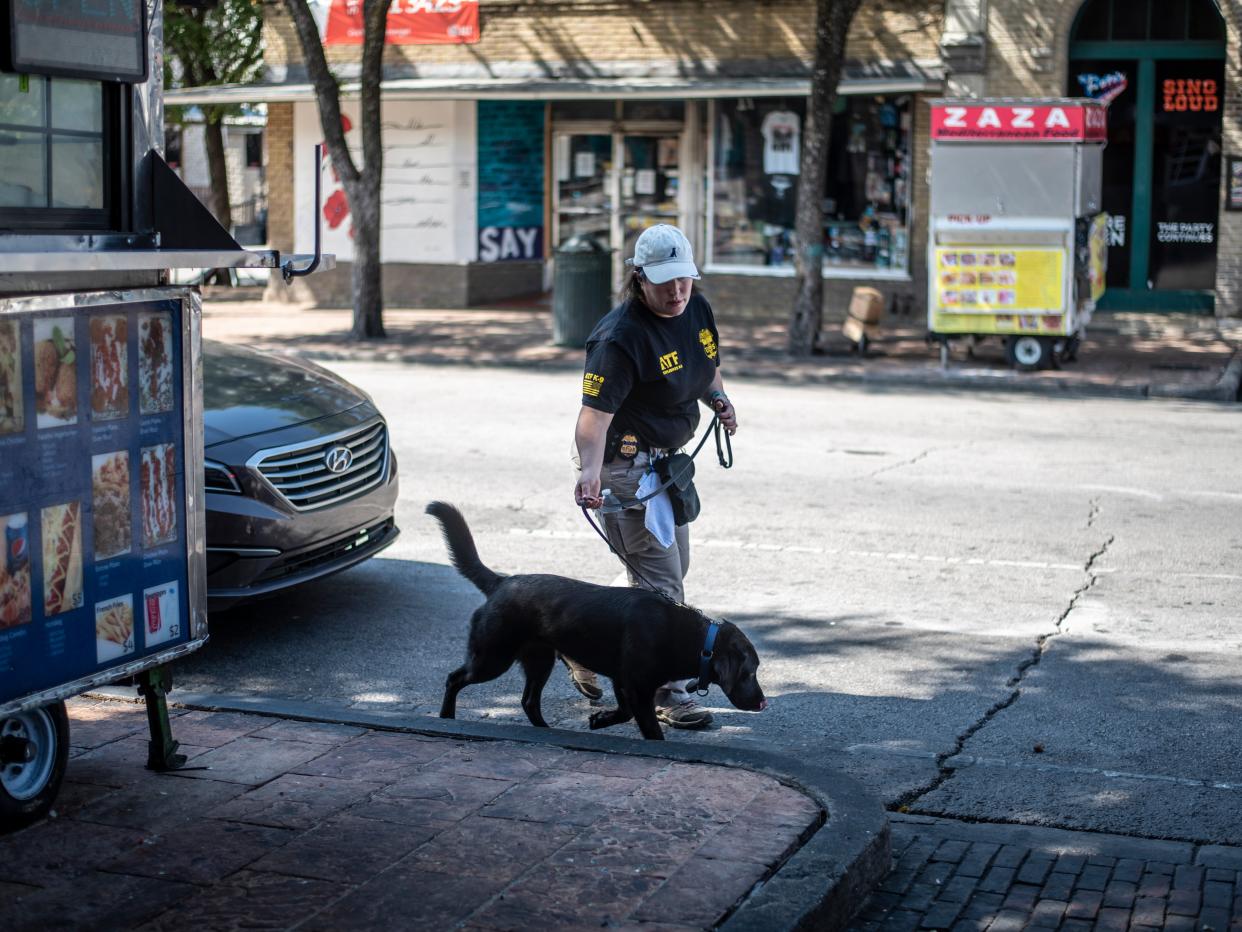Drug-sniffing dogs sent into early retirement by cannabis legalisation

Drug-sniffing dogs are being sent into early retirement all over the country as more states legalise marijuana.
The Tucumcari Police Department in New Mexico announced on Facebook on 29 June that its K-9 Aries was retiring.
“With the legalization of recreational marijuana, K-9 Aries is unable to continue his function as a narcotics detection dog,” the department said. The problem is that drug-sniffing dogs can only indicate that a drug is present, but not which specific drug.
“A dog can’t tell you, ‘Hey, I smell marijuana’ or ‘I smell meth,’” Tommy Klein, the police chief in Rifle, Colorado, told The New York Times in 2018. “They have the same behaviour for any drug that they’ve been trained on.”
In places where the drug has been legalized – such as California, Oregon, Maine, Vermont, and Canada – new dogs are needed that have no reaction to cannabis. Even police departments in locations where the drug is still illegal are hesitant to recruit dogs that have been trained to find it.
The owner of Top Dog Police K-9 Training and Consulting in Modesto, California, Ron Cloward, told The Times that a department in Texas “asked me not to put marijuana on” a dog he was training for them. “They had the feeling there could be some changes coming there, and they wanted to plan ahead.”
While marijuana is not fully legal in the state, Republican Governor Greg Abbott signed an expansion of medical marijuana into law in June.
The recreational use of marijuana is now legal in 18 states, the District of Columbia, the Northern Mariana Islands, and Guam. The Associated Press reported in late May of this year that K9s were being retired early in Virginia as the state prepared to legalise possession of up to an ounce of cannabis on 1 July.
The state police in Virginia decided to retire 13 dogs, and many smaller departments decided to retire one or two dogs. Most of these police departments are buying and training new dogs that detect only illegal drugs such as cocaine, heroin, and methamphetamines. But some departments can’t afford the up to $15,000 price tag for a new dog and are instead closing their K-9 units.
Dogs trained for multiple drugs alert their handlers in the same way regardless of the drug and also cannot distinguish between a smaller, legal amount of cannabis and a larger, still illegal amount.
This means that they can’t be used to establish probable cause for a search.
“We won’t use our dogs trained in marijuana because that could be a defence an attorney would raise for a client, to say, ’Which odour did the K-9 alert on – was it marijuana or was it an illegal drug?” Bedford County Sheriff Mike Miller told the AP.
“The trend is everywhere,” the executive director of the United States Police Canine Association, Don Slavik, told the wire service.
“Once you train a behaviour in a dog, that never goes away. They don’t want any mistakes, so that is why they want to bring in new dogs,” he added.
Read More
Retired Ohio sheriff and tiny K-9 partner die the same day
Retiring police officer raises $70,000 to buy his beloved K-9 partner
Doctor Who's K-9 sidekick is dragged into 21st century in computer-designed cartoon

